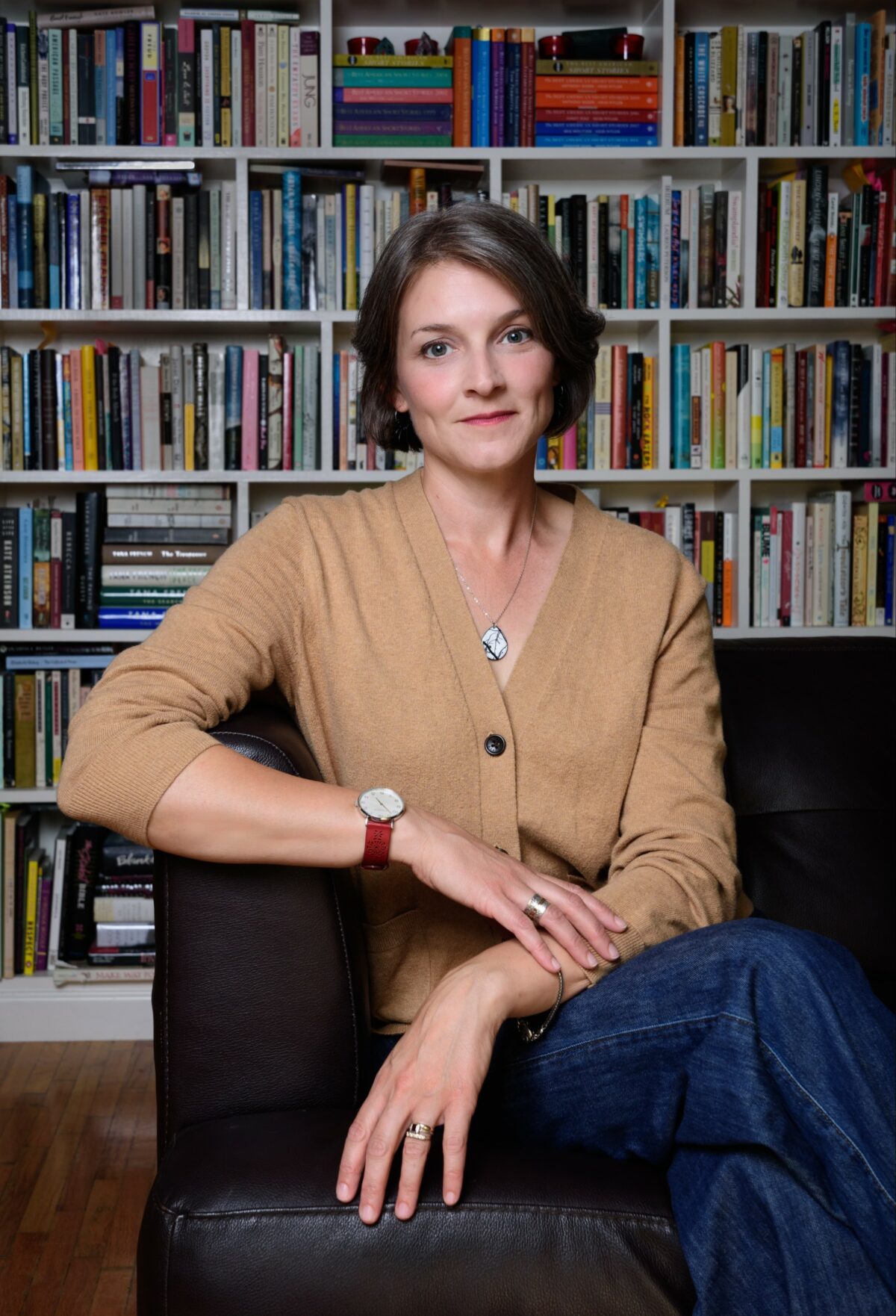
Pacific Northwest author’s new novel captures atmosphere of the region
Read and Listen
On a gray, early spring morning, I drove to Steilacoom, Washington, to catch the ferry to Anderson Island. I boarded alongside the line of other cars and after parking, stepped out onto the deck of the boat. The ferry pushed off from the dock and rocked a little in the Puget Sound before steadying.
I took this journey to the real Anderson Island to see from the water what inspired Northwest author Kirsten Sundberg Lunstrum’s new novel, “Elita,” which was published earlier this year. Sundberg Lunstrum was inspired while sailing around the Puget Sound to write a mystery novel on an island.
Sundberg Lunstrum read excerpts of the book at a gathering at Tacoma’s Grit City Books. You can hear some of that and her talk about the book here.
(Runtime 3:50)
I met Sundberg Lunstrum before the reading at a coffee shop to chat about the book. This is an excerpt of that interview. It has been edited for length and clarity.
Lauren Gallup: I think maybe if you could just start by giving our listeners a little bit of an introduction of what this book is about.
Kirsten Sundberg Lunstrum: So “Elita” is a literary mystery being billed, I think accurately, as the un-American take on Nordic noir and it is centered here in South Puget Sound around fictionalized versions of McNeil and Anderson Island. It’s set in the mid-20th century, right after World War II.
Bernadette Baston is an adjunct professor of education and child development with a particular focus on language acquisition in children. And she is called in on a case of a girl, an adolescent girl who has been discovered living and surviving alone on Elita Island, which is my fictionalized McNeil. And the officials on the case cannot discern where this girl has come from, how she’s got to the island, how she’s survived, how long she’s been there, because she’s nonverbal.
… And the more she (Bernadette) learns about the case, the more she learns about the child, the more entangled she becomes, and invested in keeping this girl’s autonomy and agency for her. But in keeping the child’s agency, she also discovers all the ways that she herself is not as independent as she wishes she were. So it’s a story about motherhood, about feminism, about work, and being a woman who is attempting to balance motherhood and work. And it’s also a bigger story about the tension between independence and society.
Gallup: I want to make sure that we get to talk about the setting of this book. Because it’s fictionalized, both of McNeil and Anderson, right? Why did you choose that place, and to create that place?
Sundberg Lunstrum: So, I’m from the Puget Sound area, and my fiction is always rooted in setting. I often know where the story is set before I know what the story’s plot or characters might be.
With this story, I was sailing. My family ended up learning to sail during COVID as one of the ways we could get out of our house. And so we were camping out of a pocket sailboat, and it was kind of the way we could spend our summer not in the four walls of our home. In learning to sail around Puget Sound, my children and my husband and I were looking at sailing guides. And even though we’ve lived in this area for a long time, we were not aware of McNeil Island, and it came up in one of the sailing guides.
… We ended up sailing from the Tacoma area out to Anderson and McNeil and I just became really fascinated by the history of those two islands, the reality that I think many people in Puget Sound, especially north Puget Sound where I live, are totally unaware of the region farther south and of the history of McNeil and Anderson. And so I did some research and became certain that I wanted to set a story there.
Gallup: You mentioned earlier in our conversation a genre that I’m not familiar with: Nordic noir. What is that?
Sundberg Lunstrum: So, I don’t know if I am expert enough to be the definitive guide on Nordic noir, but in my own love of mysteries, I sort of went down the rabbit hole into Nordic noir, which is, I would say, a subgenre of mystery. Often, it leans towards suspense or psychological suspense rather than a cozy mystery might.
It’s very much rooted in place. So, there’s a really lovely tradition of Nordic noir coming out of Iceland and Denmark, but stories that are rooted in atmospheric qualities of the setting, the temperateness of the setting, the way in which people are part of the landscape and are also at odds with it because of its frigidness. And the inherent danger in the landscape. And I was really intrigued by that as a reader and wanted to see if that genre was something I could sort of overlay on the Pacific Northwest.”
Gallup: You’ve said that there’s maybe a distinct voice or distinct set of questions that Pacific Northwest literature is trying to answer or discussing. What do you think those are?
Sundberg Lunstrum: I think Pacific Northwest literature is interested in how we can be with our landscape, but also recognize its distinct separateness from human civilization. I think we have a particular way of identifying the ecological significance of this place as separate from us.
I also think that we’re much more aware of … our positionality between the water and the land here, that we’re kind of right on the edge of the country. There’s this sense that we all (have) been talking about my whole life that the big one is gonna shake us loose at some point. There’s a kind of fragility and tenacity always working in tandem, I think, in our consciousness of this place, that’s different than it might be in other places.
















